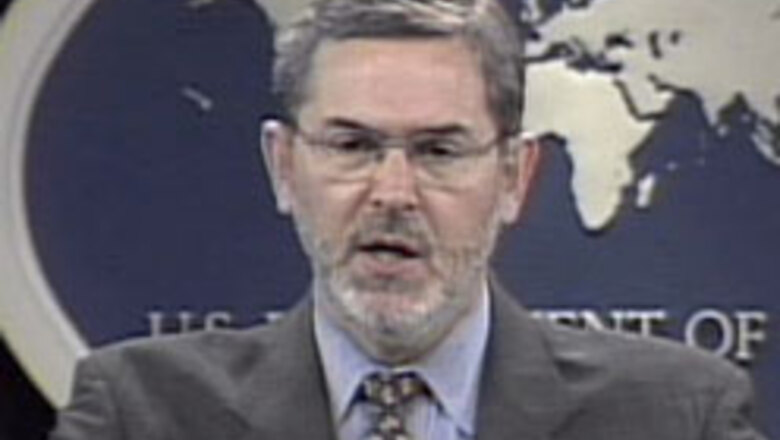
views
Washington: The Bush administration is willing to consider changes in its legislative proposal to win congressional approval of a controversial US-India nuclear energy cooperation accord, Assistant Secretary of State Richard Boucher said on Monday.
"We're trying to be understanding of congressional prerogatives and flexible in our approach provided that it results in really moving the legislation forward," Boucher told Reuters in an interview.
"We haven't quite reached closure yet on how that might happen, but we're certainly open to suggestions from the Hill and hope Congress will vote to approve the nuclear deal in the next month or two," he said, without giving more details.
The nuclear agreement, granting India access to US nuclear fuel and reactors for the first time in 30 years, has run into serious trouble in Washington and New Delhi.
Critics on both sides complain their side got too little and the other side got too much. In the US, Congress must approve the deal, which was first agreed to in principle by President George W Bush and Indian Prime Minister Manmohan Singh last July 18.
The 46-national Nuclear Suppliers Group, which controls nuclear trade, also must change its rules. Concerned the landmark accord had lost momentum, Undersecretary of State Nicholas Burns is to meet Indian Foreign Secretary Shyam Saran in London on Thursday where Boucher said they would seek to spur progress.
Boucher, who handles policy towards South Asia and Central Asia, urged India to put forward a formal reply to the US draft on the nuclear agreement, saying "the sooner they can get back to us, the sooner it helps move this along."
India also has not had meaningful negotiations with the UN watchdog agency, the International Atomic Energy Agency, on another key piece of the deal, a system to monitor Indian civil nuclear facilities, experts say.
Some experts wonder if India may be having second thoughts about the accord, which has fueled strident anti-government criticism in New Delhi.
Burns' message to Saran will be "We'll continue to work with you. We need to move forward together," Boucher said.
The US side will seek an update on where India stands on the IAEA and peaceful nuclear cooperation agreements while the Indians will want to know when Congress and the Nuclear Suppliers Group are likely to act, Boucher said.
The NSG meets in Brazil next week but Washington will not ask for a formal decision on the India deal because many NSG members want Congress to act first, he added.
National Security Adviser Stephen Hadley is expected to meet on Capitol Hill on Wednesday with Republican Rep Henry Hyde of Illinois, chairman of the House of Representatives International Relations Committee, and Democratic Rep Tom Lantos of California, the panel's senior Democrat, to discuss legislative action.
Lantos recently said the nuclear accord lacked the support needed to pass Congress and proposed a compromise intended to keep alive the agreement, which would radically alter 30 years of the US policy designed to punish India because it developed nuclear weapons in contravention of international norms.
Under Lantos' two-step initiative, Congress would commit to approving the nuclear deal under expedited procedures but only formally change the US law after lawmakers review the completed nuclear cooperation agreement and the IAEA safeguards accord.
"We understand there is significant sentiment in support of the concept Lantos put in his legislation (and) that others have other observations or conditions they'd like to insert. We're trying to work with them," Boucher said.



















Comments
0 comment